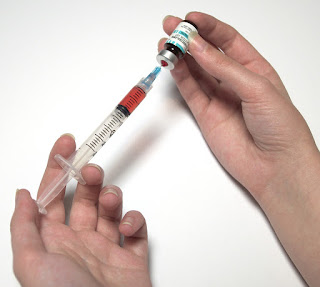About:
In the United States, George
Washington University researchers and Johns Hopkins University examined
thousands of tweets sent between July 2014 and September 2017. They got many
accounts, which were now interfered in the US elections, as well as marketing
and malware bots, tweeting about vaccinations and online health communications
were dropped.
 |
| Twitter bot, misinformation spread on Russian troll vaccine |
Description:
Dr. Broniatowski's team
reviewed more than 250 tweets about the vaccination sent by the accounts of
Internet Research Agency (IRA), a Russian government-assisted company
intervening in the 2016 US elections. These bots can be human users or 'cyborg'
- hacked accounts that are sometimes taken by bots. Although it is impossible
to know how many Tweets were prepared by bots and trolls, our findings show
that with a series of hidden agendas, an important part of online explanation
about vaccines can be produced by malicious actors. For, researchers found that
"content pollutants" - malware, unwanted commercial content and
disruptive material delivery Injury to a bot account - shared anti-vaccination
messages to share 75 percent higher than the average Twitter user.
Earlier this month, the World
Health Organization (WHO) said that in Europe, high records in cases of
measles, experts have blamed this increase in the number of people being
immunized in transit. Research published in June was found. The strategy of the
Russian troll form is the rule of the 'anti-wax' line to Mughal, what is behind
the 'Anti-Wax' movement?
Researchers found that shared
anti-vaccination messages share 75 percent more than the average Twitter user,
'content pollutants,' bot accounts that distribute malware, unwanted commercial
content and disruptive material. University of Maryland Professor Sandra Cross
Quinn said that anti-vaccine material uses pollution to click on ads and links
to endangered websites to entice its followers. "Ironically, the content
that comes in contact with the biological virus can promote the contact of the
computer virus.
Russian troll and more
sophisticated bot accounts used a different strategy, posting an equal amount
of pro-anti-anti-vaccination tweets. Dr. Broniatowski's team reviewed more than
250 tweets about the vaccination sent by the accounts of Internet Research
Agency (IRA), a Russian government-assisted company intervening in the 2016 US
elections. They used tweets in American society for controversial issues such
as vaccination polarized language for racial and economic inequalities.
John Drops, Johns Hopkins,
said, "These trolls are using immunization as vaccination, promoting
controversy in American society." Casting a tweet on the quoted vaccines
in the study reads the suspicion: "Did you know that there was a secret government
database of # vaccine-damaged children? # Illustration". Another debate
for vaccination said: "#Victinets you can not cure stupidity, let them die
of measles, and I am for # certification!"
Researchers found that
'content pollutants,' bot accounts that distribute malware, unwanted commercial
content and disruptive content, share 75 percent more anti-vaccination messages
than shared Twitter users. Johns Drops, Johns Hopkins, said, "These trolls
are using immunization as vaccination, which promotes controversy in American
society." "However, playing both sides, he destroyed public
confidence in vaccination, so that we become aware of the danger of all
infectious diseases. Viruses do not respect national boundaries."
We hope you
will like this post and get some usefull information from this post.If any
question regarding this post please tell us in a comment box or contact us
page.
No comments:
Post a Comment